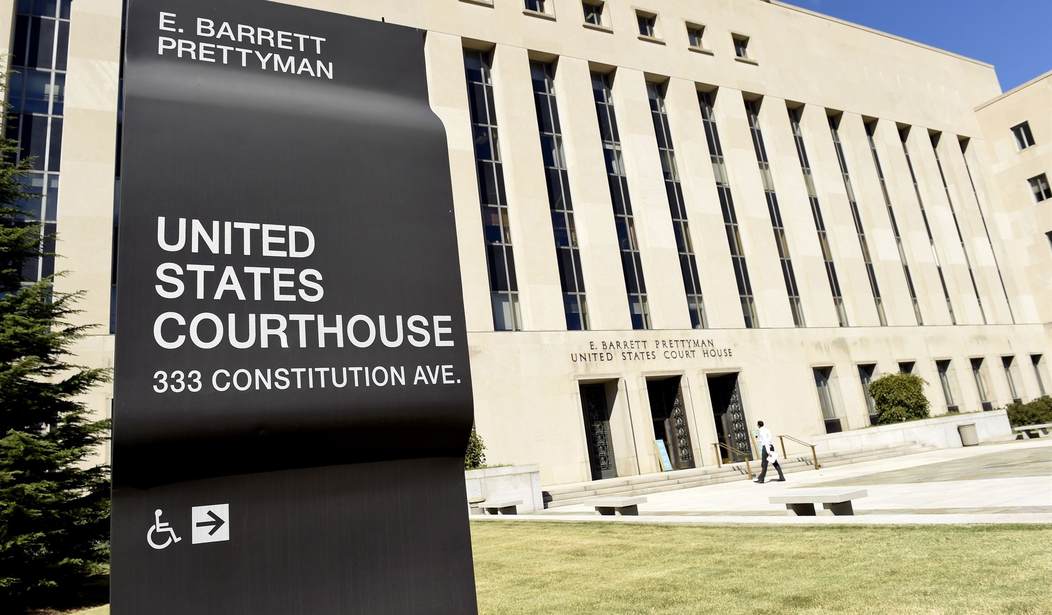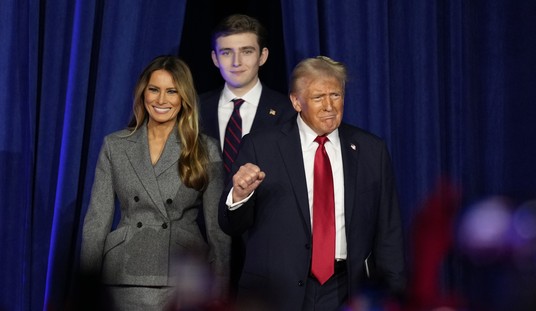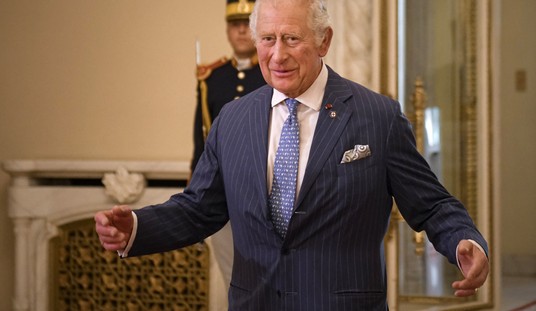Originally, this "By the Numbers" analysis was intended to provide a brief overview of some basic facts and statistics regarding the federal judiciary. But then it started to take on a life of its own, so I decided to break it into separate installments.
In Part 1, I shared a breakdown of the Supreme Court and the ratio of unanimous decisions to party-line decisions. I also provided a breakdown of the number of federal district court judges and appellate court judges appointed by each party/president.
READ MORE:
By the Numbers: Some Surprising (and Not-Surprising) Stats
About the Federal Judiciary (Part 1)
Because so much of the focus of late has been on the litigation challenging executive actions taken by President Donald Trump, and because so many of those suits have been filed in the D.C. District Court, I thought it might be useful to take a deeper dive into the makeup of that court. We'll also look at the distribution of these cases among the various active judges on the court.
The Makeup of the D.C. District Court
So, let's take a closer look at the D.C. District:
- Number of district court (non-senior status) judges - 15
- Number of senior status district court judges who remain active - 9
- Democrat appointees
- Clinton - 3
- Obama - 8
- Biden - 5
- Republican appointees
- Reagan - 1
- Bush 43 - 3
- Trump - 4
Takeaways/Notes:
- As with the district courts overall, two-thirds of the active judges in the D.C. District Court were appointed by Democrats.
- The senior judges make up close to 40 percent of active judges in the district.
Case Distribution
Given that there are 24 active judges in the D.C. Circuit, why do some of the same names seem to be cropping up in relation to the high-profile cases? This perception has prompted some to wonder if cases truly are randomly assigned, or if, instead, certain cases are getting assigned to certain judges (and/or certain judges are seeking out specific cases) in order to further an agenda.
Well, let's take a look at the actual case distribution. To start, I need to include some caveats:
- Since January 20, 2025, there have been over 1,300 cases filed in the D.C. District Court.
- Most of those cases have little, if anything, to do with the Trump administration/Trump's executive actions.
- Though one might expect that number to indicate an uptick in cases filed in the district in response to Trump's taking office, during the same period in 2024, roughly 2,200 cases were filed in the district. In 2023, it was roughly 1,900.
- If we limit it simply to civil cases (which those challenging the administration are), since January 20, 2025, there have been close to 950 cases filed in the district. In comparison, approximately 1,360 civil cases were filed in the same period in 2024; 1,340 in 2023.
- I've been tracking these cases as closely as possible and have compiled a list of them, but it's not comprehensive — there are, undoubtedly, cases that haven't been picked up yet, particularly on the immigration front.
- Several of the D.C. cases I'm tracking have not yet been assigned to a judge.
- Many of the most recently filed cases are Freedom of Information Act cases rather than direct attempts to enjoin the administration from pursuing various executive actions, but I've included them where it appears they may lead to later challenges to the administration.
That said, I'm counting 186 cases filed in the D.C. District Court challenging the Trump administration/executive actions since January 20, 2025. Simple math tells you that with 186 cases and 24 active judges, each judge should have maybe 6-9 of these cases, assuming they're randomly and fairly evenly distributed.
So, let's see what we have, taking the judges in chronological (length of time served) order:
- Royce Lamberth - senior status (Reagan) - 11 cases
- Paul Friedman - senior status (Clinton) - 6 cases
- Emmet Sullivan - senior status (Clinton) - 2 cases
- Colleen Kollar-Kotelly - senior status (Clinton) - 6 cases
- Reggie Walton - senior status (Bush 43) - 5 cases
- John Bates - senior status (Bush 43) - 4 cases
- Richard Leon - senior status (Bush 43) - 5 cases
- Beryl Howell - senior status (Obama) - 8 cases
- James Boasberg - Chief Judge (Obama) - 5 cases
- Amy Berman Jackson - senior status (Obama) - 2 cases
- Rudolph Contreras (Obama) - 7 cases
- Christopher Cooper (Obama) - 10 cases
- Tanya Chutkan (Obama) - 10 cases
- Randolph Moss (Obama) - 9 cases
- Amit Mehta (Obama) - 5 cases
- Timothy Kelly (Trump) - 11 cases
- Trevor McFadden (Trump) - 9 cases
- Dabney Friedrich (Trump) - 8 cases
- Carl Nichols (Trump) - 8 cases
- Jia Cobb (Biden) - 11 cases
- Ana Reyes (Biden) - 6 cases
- Loren AliKhan (Biden) - 6 cases
- Amir Ali (Biden) - 8 cases
- Sparkle Sooknanan (Biden) - 4 cases
Obviously, there's a fair amount of variation as to the number of these cases assigned to each judge. Most of the judges who have fewer than six cases are senior status judges (the exception being Sparkle Sooknanan, with four, but she's also the newest judge, having just been sworn in on January 2).
I suspect one of the big surprises is that Judge Boasberg also only has five of the cases. Obviously, he is notoriously associated with the J.G.G. v. Trump Alien Enemies Act/TdA case. He's also presiding over the American Oversight v. Hegseth case (a FOIA request over Signalgate). The other three cases are also FOIA cases, but there haven't been any significant rulings on those yet.
It is rather interesting that Judge Lamberth, the most senior judge on the court, has so many. However, there's a great deal of issue overlap in the cases he's handling. Four of his 11 involve the housing of transgender inmates; six involve the defunding/dismantling of the U.S. Agency for Global Media; and one is a FOIA request case.
Let's look at the other judges who each have 10 or 11 of the Trump administration cases assigned to them:
- Tanya Chutkan
- Establishment of DOGE - 2 cases
- Denial of federal grants (the Citibank cases) - 5 cases
- Removal of independent agency leaders - 1 case
- Visa revocation - 1 case
- FOIA - 1 case
- Timothy Kelly
- Birthright citizenship - 1 case
- Ban on DEIA initiatives - 1 case
- Temporary pause of grants/assistance programs - 2 cases
- FOIA - 5 cases
- Former death row prisoner redesignation - 1 case
- Removal of independent agency leaders - 1 case
- Jia Cobb
- Reinstatement of Schedule F for policy/career employees - 2 cases
- Establishment of DOGE - 3 cases (1 closed)
- Removal - 2 cases (1 closed)
- DOJ review of FBI personnel involved in J6 investigations - 2 cases
- Termination of student exchange program - 1 case
- Collection of SNAP applicant/recipient info - 1 case
So, it appears that the judges who have more cases assigned to them tend to have multiple cases that have overlapping issues, and thus, the cases are related if not consolidated — and in Judge Cobb's case, two of the cases are already closed (voluntarily dismissed). Judge Kelly's assigned cases seem to be the most diverse in nature — to the extent it matters, he is a Trump appointee.
In other words, while I do think there are fair questions about how Judge Boasberg ended up with the J.G.G. case, overall, the only discernible patterns regarding case assignments are that the most senior and most junior have fewer, and the judges who have the most cases assigned to them tend to have cases that lend themselves to being grouped together.
But...What About the Rulings?
Okay, now we get to the crux of the matter — how are the D.C. District Court judges ruling? Is the Trump administration getting a fair shake in any of these cases? Or is it all just "chronic injunctivitis," as Professor Jonathan Turley has observed? We'll take a closer look at the rulings issued thus far in Part 3 of this series.
Editor’s Note: To celebrate the passage of the tremendous One Big, Beautiful Bill, we’re offering a fire sale on VIP memberships!
Join us in the fight against the radical left today and support our reporting as President Trump continues to usher in the Golden Age of America. Use promo code POTUS47 at checkout to get 74% off!















Join the conversation as a VIP Member